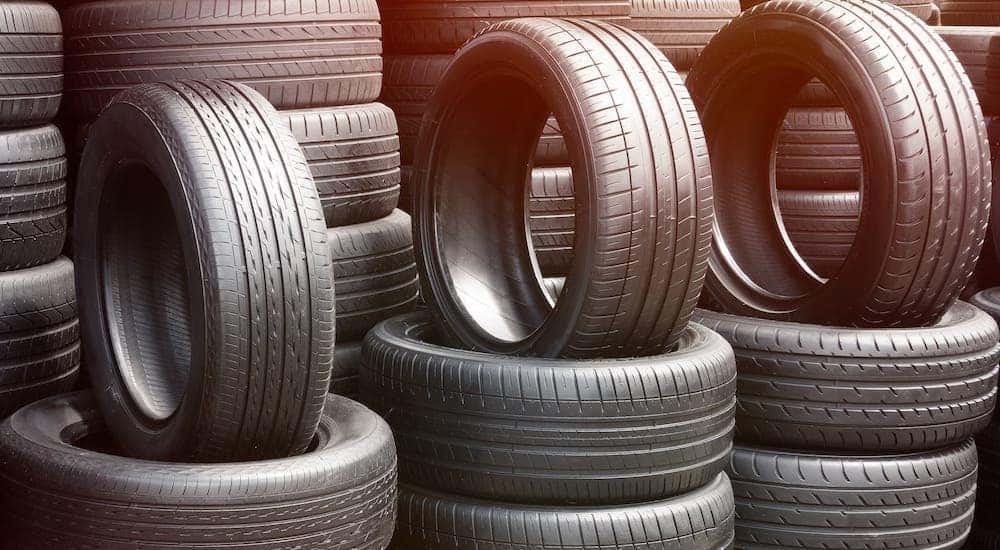Trustworthy Tire Shop Morris: Your Destination for Top Quality Tires and Providers
Trustworthy Tire Shop Morris: Your Destination for Top Quality Tires and Providers
Blog Article
Tire Solution: The Impact of Weather
When it comes to ensuring optimum efficiency and safety and security on the roadway, comprehending the impact of weather condition problems on tire solution is vital. In this discussion, we will explore the complex connection between weather condition conditions and tire service, losing light on the importance of weather-specific tire upkeep practices and factors to consider.
Heat and Tire Efficiency
When revealed to heats, tires experience changes in efficiency that can considerably impact vehicle safety and security and handling. The heat generated from long term driving or heat conditions causes the tire rubber to soften, causing decreased walk life and raised wear. As the rubber comes to be softer, the tire's hold on the roadway lessens, affecting stopping ranges and overall grip. In severe situations, excessive warm can also cause tire blowouts, positioning an extreme security risk to the automobile and its passengers.
Furthermore, heats can increase the procedure of tire aging, triggering the rubber to degrade quicker. This can cause cracks, protrudes, and various other forms of damages that compromise the architectural stability of the tire. To minimize the impacts of warm on tire efficiency, drivers should consistently inspect their tire pressure, turn tires to ensure also use, and inspect for any type of signs of damages. Additionally, making use of tires specifically developed to withstand heats can aid preserve ideal efficiency and safety and security on the roadway.
Winter Effects
Cold weather conditions can have a substantial influence on tire performance and security. As temperature levels drop, tire rubber can solidify, causing decreased grip on icy or snow-covered roadways. In winter, tires might likewise shed atmospheric pressure more swiftly, which can impact taking care of and fuel effectiveness. Furthermore, cold temperature levels can cause tire sidewalls to stiffen, boosting the risk of damage from holes or other roadway risks.
To mitigate the impacts of winter on tires, it is important to on a regular basis inspect tire pressure and inflate them to the supplier's advised degrees. Using winter season or all-season tires developed for cold climate conditions can additionally enhance traction and hold on icy or snowy roadways - morris tire and alignment. Appropriate tire upkeep, including routine evaluations for wear and damages, becomes a lot more crucial throughout colder months to make sure optimal efficiency and security
Rainy Issues Effect
During wet problems, tire performance and security can be substantially influenced by the wet roadway surfaces and minimized presence. The step pattern of tires plays an essential duty in keeping grip on wet roads. Tires with worn-out treads are more vulnerable to hydroplaning, where a layer of water accumulates in between the roadway and the tire surface area, causing loss of traction. To combat this, drivers ought to routinely inspect their tires for ample step depth and consider spending in tires specifically made for damp conditions.

Snow and Tire Safety And Security
Snow-covered roadways pose distinct obstacles for motorists, stressing the value of appropriate tire option and upkeep. When driving in snowy conditions, having the ideal tires can make a substantial difference in safety and security and performance. Wintertime tires are made with special rubber compounds and walk patterns to provide much better grip on snow and ice contrasted to all-season tires. The much deeper treads and sipes of wintertime tires help hold the roadway much better, decreasing the danger of moving tire shop morris and sliding.
In enhancement to making use of winter months tires, it is important to guarantee they are effectively pumped up. Winter can create tire stress to drop, influencing grip and handling (tire shop morris). Frequently inspecting and preserving the proper tire pressure is important for optimal performance in snowy conditions

Weather-Related Tire Upkeep
When confronted with different weather, appropriate tire upkeep ends up being an essential facet of lorry safety and performance. Weather-related tire maintenance encompasses a range of methods focused on making certain optimum tire function and long life in different climate scenarios. One crucial facet of weather-related tire maintenance is tire pressure regulation. Rising and fall temperatures can trigger tire pressure to differ, impacting grip and gas efficiency. Routinely examining and readjusting tire pressure according to supplier referrals is essential for risk-free driving in changing climate condition. In addition, tire step deepness plays a considerable duty in dealing with various weather condition components. Tires with adequate walk deepness give better hold on wet or icy roadways, minimizing the threat of skidding or hydroplaning. When tread wear reaches a certain depth is essential for maintaining traction and security in damaging weather, examining tire walk consistently and replacing tires. By prioritizing weather-related tire maintenance, motorists can boost security, improve lorry performance, and extend the life-span of their tires.
Verdict
In verdict, climate condition have a substantial effect on tire performance and safety and security. From warmth affecting tire stress and wear to cool climate lowering traction, it is necessary to think about the climate when keeping and utilizing tires. Rainy conditions can lower grasp and lead to hydroplaning, while snow can enhance the danger of accidents if tires are not properly furnished. Weather-related tire maintenance is critical in making certain optimal performance and safety when traveling.
In this conversation, we will certainly discover the complex relationship between weather conditions and tire service, losing light on the relevance of weather-specific tire maintenance practices and factors to consider.

Report this page